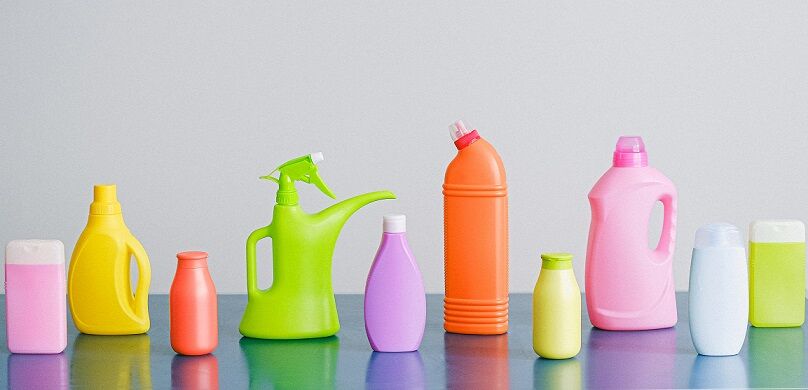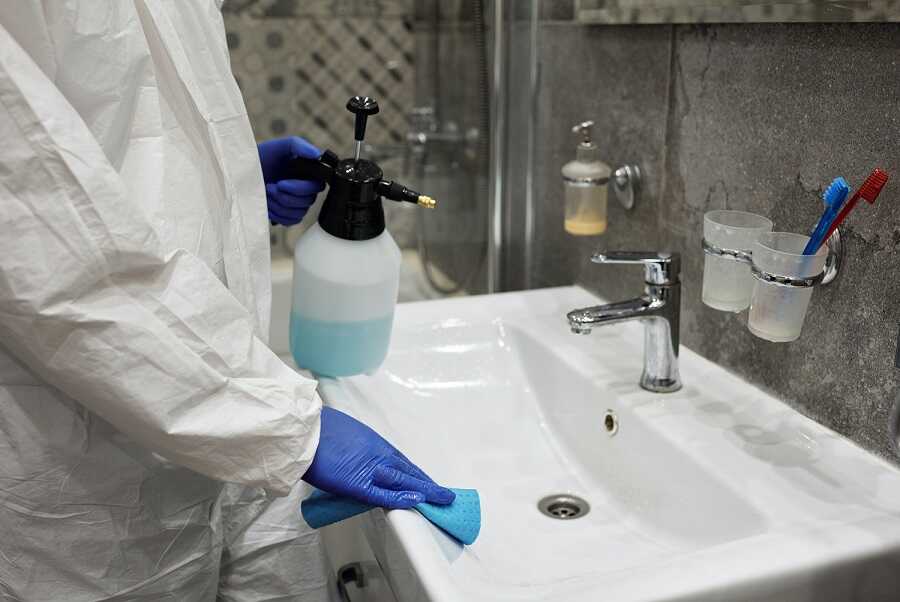How to Safely Use and Store Cleaning Chemicals in Your Home?
Cleaning chemicals are essential for maintaining a clean and hygienic home environment. However, it’s important to handle these substances with care to ensure the safety of yourself, your family, and your pets.
In this article, we will provide you with valuable tips on how to safely use and store cleaning chemicals in your home, promoting a healthy and hazard-free living space.

Maintaining a clean home is crucial for overall well-being, and cleaning chemicals play a significant role in achieving this. However, it is essential to be aware of the potential hazards associated with these chemicals and adopt safe practices to protect yourself and your loved ones.
Understanding Cleaning Chemicals
Cleaning chemicals come in various forms, including sprays, liquids, powders, and gels. They are designed to target specific surfaces and types of dirt or stains. Common cleaning chemicals include disinfectants, detergents, solvents, and abrasive cleaners. These substances often contain powerful ingredients that can be harmful if not used and stored correctly.
Necessary Precautions
Before you begin using cleaning chemicals in your home, it is vital to take necessary precautions:
- Read and follow the instructions on the product labels carefully.
- Wear appropriate protective gear such as gloves and goggles.
- Keep children and pets away from the area where you are cleaning.
- Ensure proper ventilation by opening windows or using exhaust fans.
- Avoid mixing different cleaning chemicals as they may produce toxic fumes.
Proper Storage of Cleaning Chemicals
Safe storage of cleaning chemicals is crucial to prevent accidents and minimize the risk of exposure to harmful substances. Here are some guidelines to follow:
- Store cleaning chemicals in their original containers with clearly labeled instructions.
- Keep them out of reach of children and pets, preferably in a locked cabinet or high shelf.
- Store chemicals away from food, medication, and other household items.
- Do not store cleaning chemicals near a heat source or in direct sunlight, as it can lead to degradation and potential hazards.

Safe Handling Practices
When using cleaning chemicals, follow these safe handling practices:
- Always dilute cleaning chemicals as instructed on the product label.
- Wear appropriate protective gear, such as gloves and masks, especially when dealing with strong chemicals.
- Avoid contact with eyes, skin, and clothing. In case of accidental contact, rinse thoroughly with water.
- Use cleaning chemicals in well-ventilated areas to minimize inhalation of fumes.
- Dispose of cleaning materials, such as sponges or wipes, after use to prevent cross-contamination.
Eco-Friendly Alternatives
If you prefer to reduce your use of harsh chemicals, there are several eco-friendly alternatives available:
- Vinegar: It’s an effective natural cleaner for various surfaces, including glass and countertops.
- Baking Soda: This versatile substance works well as a gentle abrasive cleaner and deodorizer.
- Lemon Juice: Its acidic properties make it an excellent option for removing stains and eliminating odors.
- Castile Soap: This mild soap is biodegradable and can be used for various cleaning purposes, such as dishwashing and surface cleaning.
- Hydrogen Peroxide: It’s an effective disinfectant and stain remover, particularly for fabrics and surfaces.
- Essential Oils: These natural oils can add a pleasant scent to homemade cleaning solutions and provide antimicrobial properties.
By incorporating these eco-friendly alternatives into your cleaning routine, you can reduce your exposure to harsh chemicals while still maintaining a clean and healthy home.
Dealing with Accidents and Spills
Accidents and spills can happen, even when practicing caution. Here’s how to handle them safely:
- Immediately clean up any spills to prevent accidents or chemical reactions.
- Wear gloves and use absorbent materials, such as paper towels or rags, to soak up the spill.
- Follow the specific instructions for cleaning up different types of spills. Some chemicals may require special handling or professional assistance.
- Properly dispose of the contaminated materials according to local regulations.
Best Practices for Disposal
When it comes to disposing of cleaning chemicals, it’s essential to do so responsibly. Follow these best practices:
- Check local regulations and guidelines for disposing of cleaning chemicals.
- Do not pour chemicals down the drain, as they can contaminate water sources.
- Look for hazardous waste collection sites or events in your area where you can safely dispose of cleaning chemicals.
- If possible, consider using up the product or donating it to someone who can use it before disposing of it.
Regular Maintenance and Inspections
To ensure the safety of your home and minimize potential risks, follow these maintenance and inspection practices:
- Regularly check the expiration dates of cleaning chemicals and dispose of any expired products.
- Inspect containers for leaks, damage, or deterioration. Replace damaged containers promptly.
- Keep an inventory of your cleaning products and update it as needed.
- Periodically review and refresh your knowledge of safe handling and storage practices.
Frequently Asked Questions (FAQs)
Here are some frequently asked questions regarding the safe use and storage of cleaning chemicals:
Can I mix different cleaning chemicals to make them more effective?
No, it is not recommended to mix different cleaning chemicals as it can produce toxic fumes or dangerous chemical reactions. Follow the instructions on each product and use them as intended.
Are natural cleaning products as effective as chemical-based ones?
Natural cleaning products can be effective for many cleaning tasks. However, their efficacy may vary depending on the specific cleaning needs. It’s important to choose the right natural product for the job at hand.
How can I ensure the safety of my children and pets around cleaning chemicals?
Store cleaning chemicals in a secure place out of reach of children and pets. Use childproof locks on cabinets if necessary. When cleaning, keep children and pets in a separate area to minimize their exposure to chemicals.
What should I do if I accidentally ingest a cleaning chemical?
In case of ingestion, immediately call your local poison control center or seek medical help. Do not induce vomiting unless instructed by medical professionals.
Can I reuse empty cleaning chemical containers for other purposes?
It is not recommended to reuse empty cleaning chemical containers for other purposes, as they may still contain residue or residual chemicals. Dispose of them properly according to local regulations.
Conclusion
Using and storing cleaning chemicals safely is essential for maintaining a clean and healthy home. By following the guidelines provided in this article, you can protect yourself, your family, and your pets from potential hazards associated with these substances. Remember to read and follow the instructions on product labels, wear appropriate protective gear, and store cleaning chemicals securely in a well-ventilated area.
Additionally, consider eco-friendly alternatives to reduce your use of harsh chemicals. By practicing safe handling, proper storage, and responsible disposal, you can create a safer environment while effectively cleaning your home.
Disclaimer
Certain content that appears on this site comes from Amazon. As an Amazon Associate we earn from qualifying purchases. Read full Disclaimer Here!






